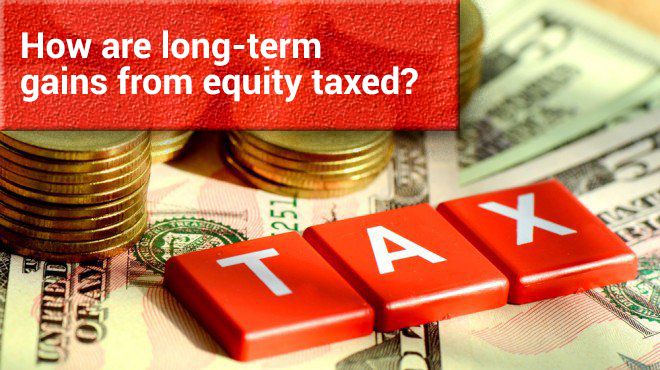
Let’s quench the thirst of many and draw an ending line to one of the most controversial discussions that whether the capital gains from equity are taxed or not. While many retired persons and homemakers earn their daily bread from gainfully buying and selling equities, they want to know if they have to pay tax on the profit.
Well, most of us know that income from salary, rent, and business is taxable, but not very sure about the taxation on equity gain. When you sell equity, you either make a profit or a loss. The profit you make on selling the asset is called ‘Capital Gains’. Capital gains are classified as short-term gains and long-term gains and taxed accordingly.
Short-term capital gains are termed based on the total tenure of holding the equity. For example, if you sell equity shares, listed on stock exchange, within 12 months of buying it, then the earning you make is called the short-term capital gains. On the other hand, long-term capital gains are when you make a profit from equity sell after 12 months of ownership i.e. long-term equity fund. Nevertheless, the short-term capital gains can be defined in different ways and so are the long-term capital gains. The tax rates also vary from one to another.
Initially, the tax rates were zero on long-term equity investment capital gains till 2003-04, which was then revised in a year in 2004-05 to impose Securities Transaction Tax (STT) to makeup the tax loss.
However, the problem with the current tax structure is at its three levels. One, there is no parity in the definition of long-term capital gains. There should be one set rule in the market and the rest of the differences should be removed, unless there is any logical argument.
Two, there are different tax rates for different products which are unreasonable. For example, the tax rate levied upon long-term capital gains from a bond is higher than the tax imposed on a stock.
Three, there is no equality in the way the retail investors approach bond and stock markets like mutual funds and life insurance. Life insurance policies through unit-linked insurance plans invest in the same stocks as the mutual funds do. On the other hand, endowment plans invest in government bonds should be taxed at par with other listed bonds.
Hence, to conclude taxes are levied on long-term capital gains but largely vary from one asset to another.